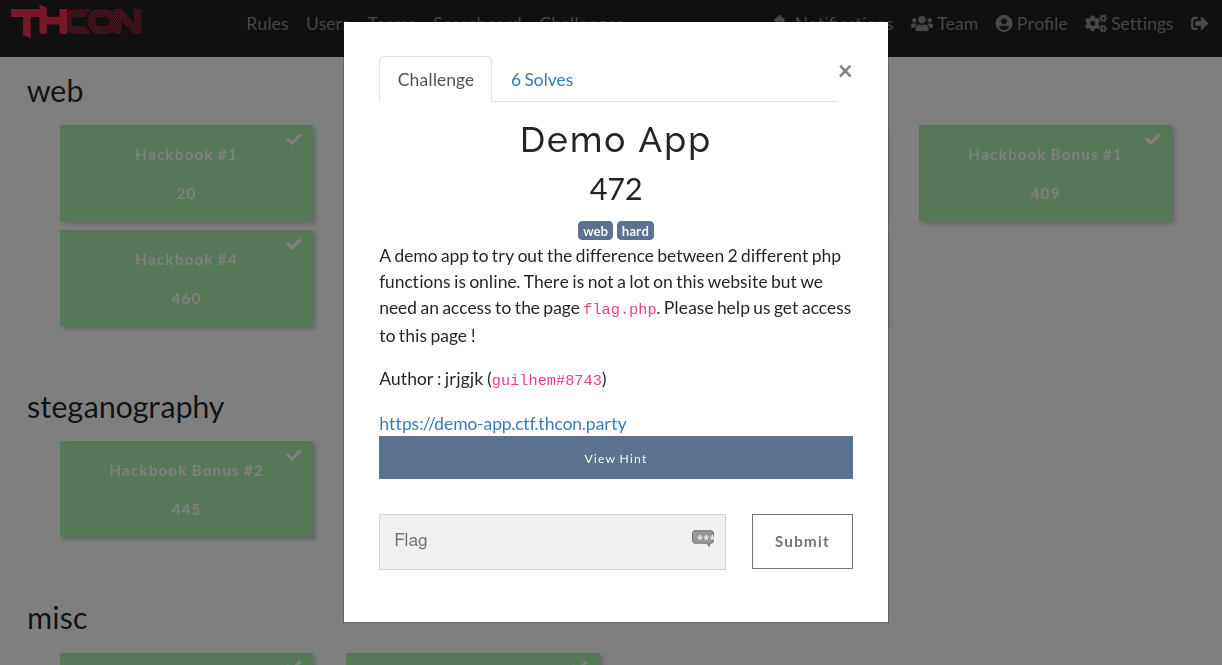Demo App - THCon23 CTF Writeup
In this article, we will solve an “hard” web challenge of the THCon23 named Demo App.

TL;DR
Exploit a path traversal and the ability to use “regex” inside path to exfiltrate the PHPSESSID of the administrator’s account.
Overview
Demo App is a PHP application that allows you to check if a specific path is a file or a directory (is_file & is_dir). The goal of the challenge is to visit the flag.php page as a logged user.
We can verify that index.php is a valid file:

There is also another page at info.php that shows us a phpinfo. The interesting thing here, is that we are on a Windows system.

Exploitation
FindFirstFile
On Windows, the is_file PHP function uses the FindFirstFile Windows API function. On the documentation of FindFirstFile, we can see that we can use * or ? to do a regex-like search. In PHP, << will correspond to * and > to ?.
[in] lpFileName: The directory or path, and the file name. The file name can include wildcard characters, for example, an asterisk (*) or a question mark (?).
We can do some tests by searching path like this:
|
|
Note that this technique only works on Windows because of the use of FindFirstFile.
We can also do Path traversal like this:
|
|
So what we have now? We can check if a file exists using regex, but we cannot read/write into files.
PHP Session Hijacking
After a bit of research, an idea comes to my mind. With the regex path search and the path traversal, we can exfiltrate the content of the directory that contains PHP sessions in order to obtains valid PHPSESSID cookies.
We can go back to the phpinfo() to get the session.name and the session.path variables.

So, now let’s make a simple python script to leak the content of the C:\wamp64\tmp directory.
|
|
Then, we can execute it:
|
|
We now can get the flag by going to the flag.php page with the cookie PHPSESSID set to qrsgncfdsohnb33115tfkib7s1:

Solved !!!